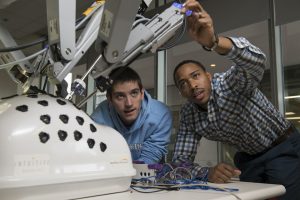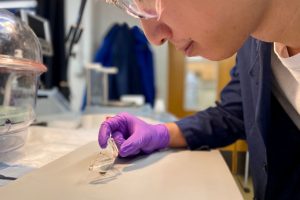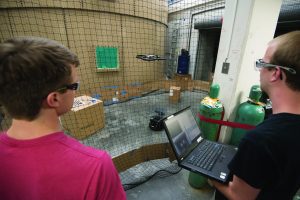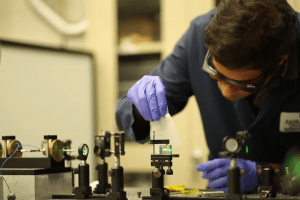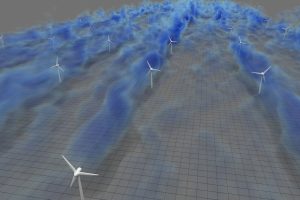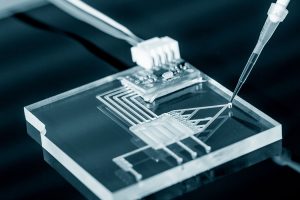Cardiovascular devices for infants with congenital heart defects. Underwater robotics for deep sea exploration. New testing tools for infectious diseases. At Johns Hopkins Mechanical Engineering, researchers study everything from wind energy and oil spills to the mechanics of the human eye.
Students and faculty have access to world-class facilities and state-of-the-art equipment for teaching and research. Our researchers participate in a wide range of school-wide and university-wide research centers and initiatives. They also collaborate with major research organizations, private companies, and government agencies on groundbreaking research to tackle the world’s greatest challenges.
Research Areas
Robotics
Understanding and designing intelligent robotic systems through rigorous analysis, system development, and field deployment
Fluid Mechanics and Thermal Processes
A strong focus is on turbulence and its diverse aspects, investigated by theoretical, computational, and experimental methods
Mechanical Engineering in Biology and Medicine
Areas of excellence include biofluids, integrated biological systems, neural control, mathematical modeling, and biomedical devices and instrumentation, and applications of these areas to medicine
Systems, Modeling, and Control
Applying systems theory to engineering applications, including mathematical modeling and analysis, dynamical systems, control theory, and design
Mechanics and Materials
Studying the deformation, fracture, fatigue, and failure of solids at different time and length scales (from atoms to planets) through advanced analytical, computational, and experimental techniques
Energy and the Environment
Investigating energy and environmental problems in both natural and engineered systems, as well as in interactions between the two
Micro/Nanoscale Science and Engineering
Conducting fundamental research on a wide range of scientific problems related to fabrication, characterization, design and modeling of small-scale materials, devices and their integration into engineered systems
